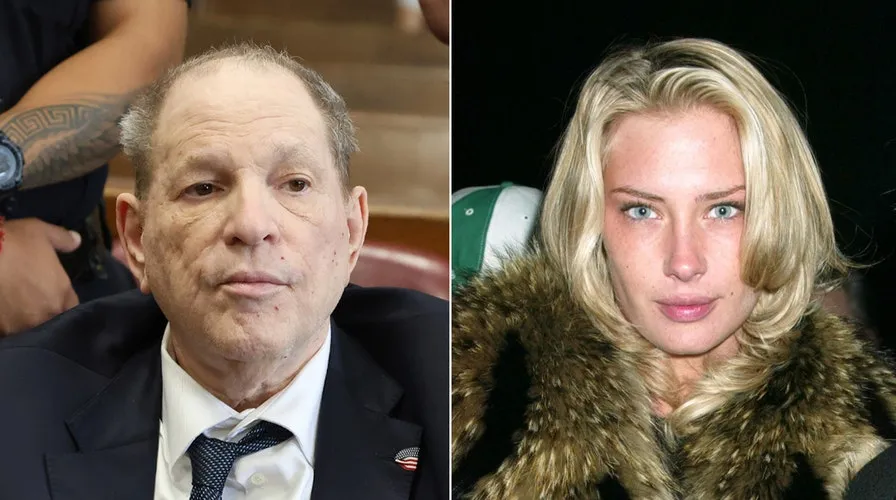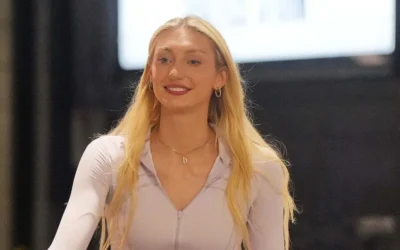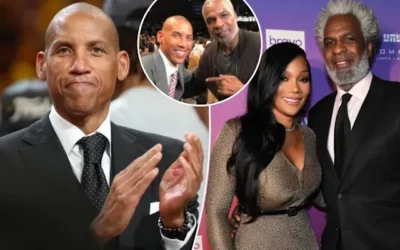Crystal McKinney: The Woman Accusing Diddy and Harvey Weinstein
In a startling turn of events, Crystal McKinney, a woman who has accused music mogul Sean ‘Diddy’ Combs of sexual assault, is now taking legal action against the notorious Hollywood producer and convicted sex offender, Harvey Weinstein. This shocking revelation not only highlights the pervasive nature of sexual misconduct in the entertainment industry but also brings to light the harrowing experiences that many survivors endure.
McKinney’s Allegations Against Diddy
Crystal McKinney’s accusations against Diddy emerged in the wake of the #MeToo movement, which empowered countless individuals to share their stories of abuse and harassment. In her lawsuit, McKinney claims that Diddy sexually assaulted her during an incident that reportedly took place in the early 2000s. At the time, McKinney was working as a model and was thrust into the glamorous yet predatory world of celebrity.
In her account, McKinney describes how she felt pressured to meet Diddy in a private setting under the guise of a professional opportunity. However, the situation quickly escalated into a nightmare, as she alleges that Diddy assaulted her while disregarding her boundaries. The emotional and psychological toll of this experience has left lasting scars, compelling McKinney to seek justice through legal channels.
The Legal Landscape
McKinney’s initial lawsuit against Diddy not only underscores her bravery in coming forward, but it also raises important questions about the legal system’s handling of sexual assault cases. Many survivors face significant barriers in seeking justice, from societal stigma to a legal process that can often be daunting and re-traumatizing.
Experts believe that the growing number of allegations and lawsuits in recent years is a sign of changing societal attitudes towards sexual assault. McKinney’s case could potentially set a precedent for other victims, demonstrating that they can wield power against high-profile figures within the entertainment industry.
A New Suit Against Harvey Weinstein
In a remarkable twist, McKinney has now added Harvey Weinstein to her list of defendants, filing a new lawsuit against him for sexual assault. Known primarily for his alarming string of sexual assault allegations that eventually landed him in prison, Weinstein represents everything that the #MeToo movement has fought against.
McKinney claims that her encounter with Weinstein occurred after her alleged assault by Diddy, further compounding her trauma. She describes being lured into Weinstein’s orbit while pursuing her ambitions in Hollywood, only to encounter another instance of predatory behavior. The emotional toll of navigating both encounters has driven her to advocate for herself and others who have faced similar violations.
The Impact of Sexual Assault Allegations
The simultaneous accusations against two of the entertainment industry’s preeminent figures mark a moment of reckoning not just for Diddy and Weinstein, but for the very fabric of an industry that has protected abusers for far too long. As allegations mount and more survivors step forward, the conversation surrounding sexual assault is evolving.
From social media campaigns to widespread protests, the #MeToo movement has inspired a wave of accountability that now ripples through the entertainment world. High-profile figures are no longer immune to the consequences of their actions, deterring others from similar patterns of abuse.
The Broader Context of Abuse and Power Dynamics
At the heart of McKinney’s allegations is a profound commentary on power dynamics within the industry. Cases like hers reveal how personal ambition can often clash with the predatory behaviors of those in positions of power. Many aspiring actors, models, and musicians find themselves in vulnerable situations, where the prospect of success can be overshadowed by the threat of exploitation.
These dynamics are compounded by systemic issues within the entertainment industry, such as a lack of reporting mechanisms, inadequate legal protections for victims, and a pervasive culture of silence around the actions of powerful men. McKinney’s actions serve to confront these injustices, bringing to light the experiences of those who have been marginalized.
What Lies Ahead for McKinney
As McKinney continues her legal battles against both Diddy and Weinstein, her actions symbolize a growing collective strength among survivors. Each lawsuit and accusation adds to the growing momentum necessary for creating real change.
McKinney’s decision to sue not just one but two high-profile figures indicates a steadfast resolve to reclaim her voice and seek justice. Legal experts suggest that her cases could lead to significant advancements in survivor rights, bolstering support systems and advocating for legislative changes to protect individuals from sexual violence.
Public Reception and Media Coverage
As with most high-profile cases of sexual assault, public reactions to McKinney’s allegations are mixed. Some are supportive, recognizing the courage it takes to speak out against powerful figures. Others, however, may express skepticism given the complexities that often accompany sexual assault cases, particularly those involving celebrity culture.
Media coverage of McKinney’s lawsuits has been intense, reflecting the heightened interest in the systemic failures that allowed abusers like Diddy and Weinstein to operate unchecked for years. Yet, it also serves as a reminder to treat such narratives with sensitivity, acknowledging the emotional toll on survivors sharing their stories.
The Ongoing Fight Against Sexual Assault
The cases against Diddy and Weinstein are far from isolated incidents. They showcase a broader societal issue that transcends celebrities and permeates all walks of life. This fight against sexual assault is ongoing and multifaceted, encompassing legal, social, and cultural dimensions.
As more survivors like McKinney step forward to share their experiences, there is hope for a future in which survivors are treated with respect and compassion rather than skepticism and shame. The momentum generated by these cases can serve as a catalyst for change, igniting conversations about consent, accountability, and compassion.
Conclusion: Empowering Survivors
Crystal McKinney’s courageous actions in suing Sean ‘Diddy’ Combs and Harvey Weinstein highlight a critical moment in the fight against sexual assault. Her story reflects what many survivors face and serves as a call to action for society to support those who have been victimized.
As legal battles unfold, McKinney’s pursuit of justice holds the potential to not only reshape her life, but impact how sexual assault cases are perceived and handled in the future. The hope is that her efforts will not only bring justice for herself but also resonate with others, empowering a movement of survivors to reclaim their narratives and find healing in a world that has long turned a blind eye.







